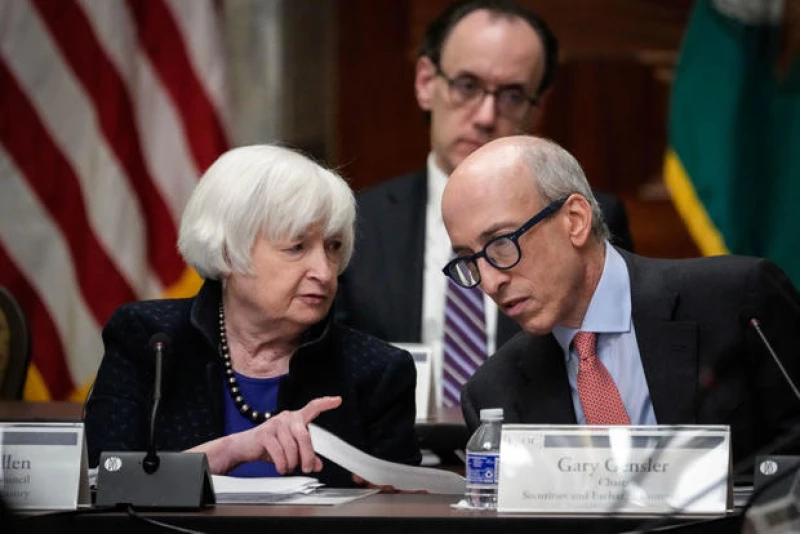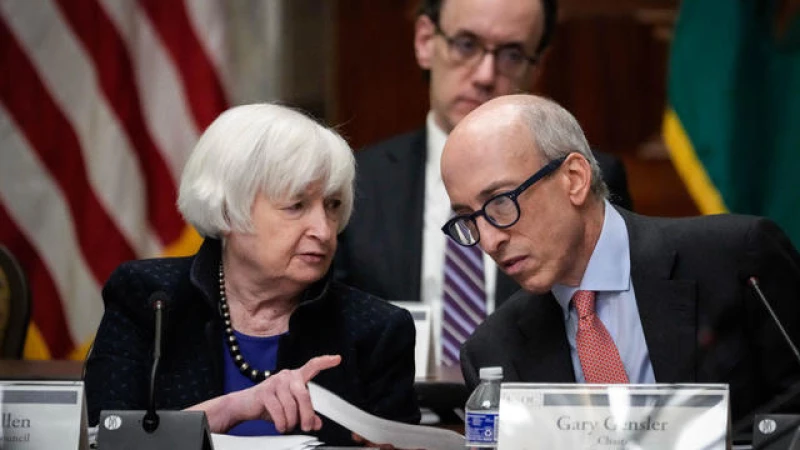The Financial Stability Oversight Council (FSOC) has raised concerns about the use of artificial intelligence (AI) in the financial sector, citing potential vulnerabilities. The council, which includes Treasury Secretary Janet Yellen, Federal Reserve Chair Jerome Powell, and Securities and Exchange Commission Chair Gary Gensler, highlighted this risk in its annual report released on Thursday. The report, available here, identifies 13 other risks as well.

While AI has become increasingly prevalent in the financial sector for pattern identification, Gensler cautioned about the associated risks. In prepared remarks for the FSOC's open session meeting, Gensler stated, "There are challenges regarding explainability, bias, and accuracy. AI also can be used by bad actors to deceive people in the markets."
In May, an AI-generated image purported to show an explosion near the Pentagon. The image, which was determined to be fake, spread across social media, rattling the stock market and causing a brief sell-off.
In her prepared remarks for the meeting, Yellen predicted the adoption of AI will become more widespread and said its usage must be managed carefully.
"Supporting responsible innovation in this area can allow the financial system to reap benefits like increased efficiency, but there are also existing principles and rules for risk management that should be applied," Yellen said.
Silicon Valley Bank collapse
The report also offered a post mortem on the March collapse of Santa Clara-based Silicon Valley Bank, which ranked as the second largest bank failure in U.S. history and triggered a regional banking crisis.
On March 10, the FDIC seized SVB — as well as New York-based Signature Bank — and guaranteed deposits after a run on the bank saw customers withdraw $42 billion in a single day. Additional measures taken by the Federal Reserve and Treasury Department helped contain the fallout.
Vulnerabilities in commercial real estate sector
According to the Financial Stability Oversight Council (FSOC), banking agencies should closely monitor uninsured deposit levels and depositor composition, and collect additional data as necessary. This is part of their recommendations going forward.
Despite the aggressive actions taken in the spring and the new recommendations, there is still some risk remaining. FSOC member agencies acted quickly to mitigate the serious risk of contagion and maintain confidence in the banking system when two regional banking firms and a global financial firm failed in March. However, these failures also highlighted the fact that vulnerabilities still exist.
Other risks: vulnerabilities in cybersecurity, climate and crypto
FSOC is also developing a framework to identify and assess climate risk and recommends "state and federal agencies continue to coordinate to identify, prioritize, and procure data necessary for monitoring climate-related financial risks."







